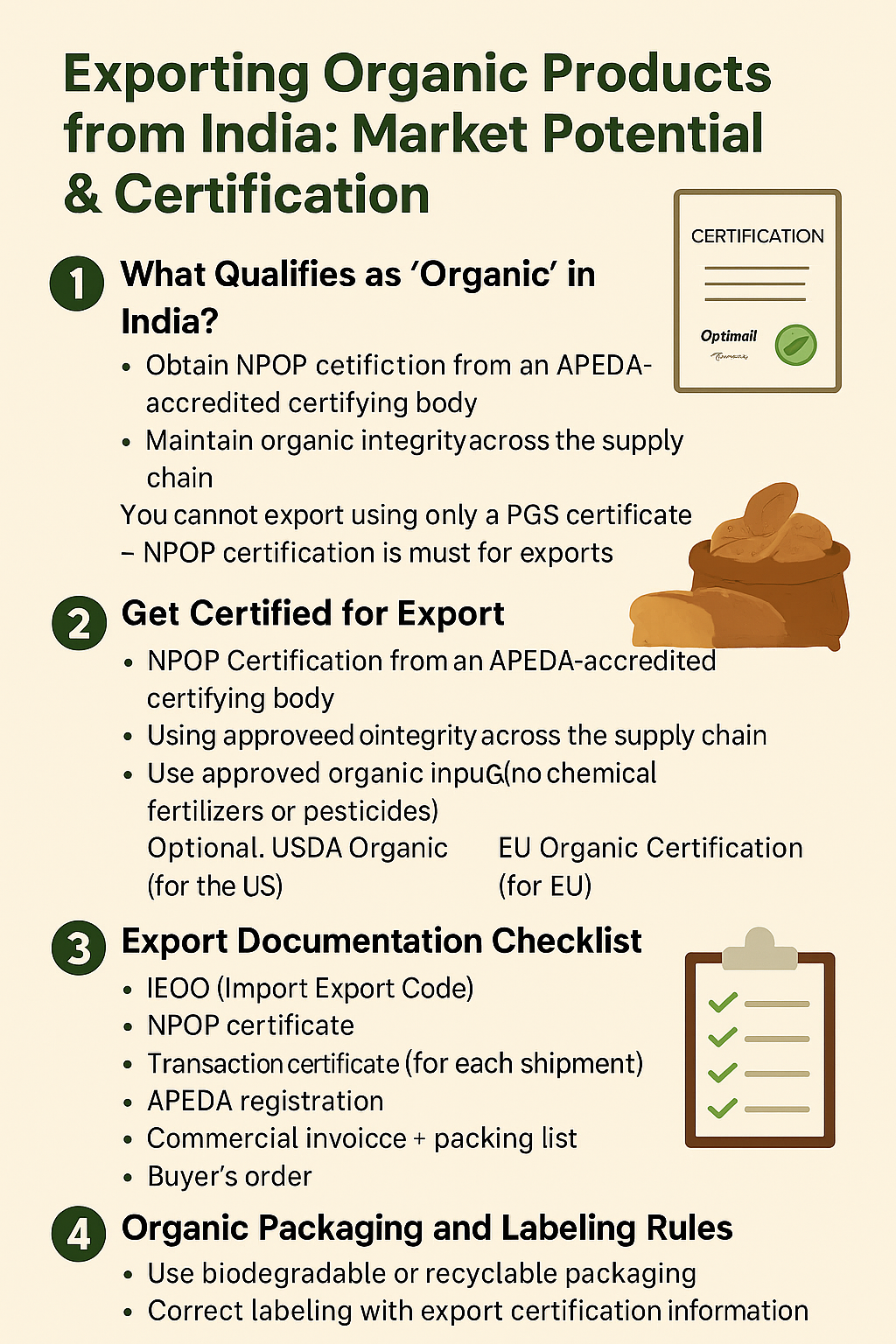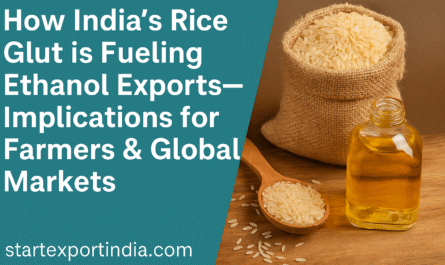Exporting Organic Products from India: Market Potential & Certification
The demand for organic products—free from synthetic chemicals, pesticides, and GMOs—is rising rapidly across global markets. From organic grains to herbal teas, India’s certified organic produce is sought after for its authenticity and affordability.
Here’s your complete guide to exporting organic products from India, including required certifications, global standards, and high-potential markets.

✅ Step 1: What Qualifies as “Organic” in India?
Under Indian law, a product can only be called “organic” if it’s certified under:
- NPOP (National Programme for Organic Production) – under APEDA
- Participatory Guarantee System (PGS) – for domestic/local marketing
🚫 You cannot export using only a PGS certificate — NPOP certification is a must for exports.
📄 Step 2: Get Certified for Export
To export organic food, you must:
- Obtain NPOP Certification from an APEDA-accredited certifying body
- Maintain organic integrity across the supply chain
- Use approved organic inputs (no chemical fertilizers, pesticides)
- Maintain traceability and audit records for inspection
Top certification bodies:
- ECOCERT
- OneCert
- Control Union
- SGS India
Optional (for global compliance):
- USDA Organic (for the US)
- EU Organic Certification (for EU)
🌍 Step 3: Identify High-Potential Export Markets
Organic products from India are especially in demand in:
| Country | In-Demand Organic Products |
|---|---|
| USA | Organic rice, turmeric, herbs, essential oils |
| Germany | Herbal teas, spices, coconut oil |
| Netherlands | Organic cotton, pulses, jaggery |
| UAE | Herbal products, organic ghee, snacks |
| Japan | Organic green tea, dried mango, oils |
💡 Niche & premium packaging adds value in these markets.
🧾 Step 4: Export Documentation Checklist
You’ll need:
- IEC (Import Export Code)
- NPOP certificate
- Transaction certificate (for every consignment)
- APEDA registration
- Commercial invoice & packing list
- Phytosanitary/Health certificate
- Certificate of Origin
- Organic label with NPOP/USDA/EU logo (as per destination)
📦 Step 5: Organic Packaging and Labeling Rules
Follow eco-friendly and compliant packaging:
- Use recyclable or biodegradable materials
- Include certification logos (NPOP, USDA Organic, etc.)
- Clearly mention:
- Organic status
- Manufacturer/exporter info
- Certification agency details
- Country of origin
- Expiry/best before date
✅ Conclusion
Exporting organic products from India offers a great opportunity — but only if you follow strict certification norms, eco-conscious packaging, and traceability protocols. With rising health awareness and sustainable living trends globally, Indian organic exporters are well-positioned to grow.
👉 Want to master export pricing step-by-step, including Incoterms, margin, freight, and refunds?
📘 Grab our ₹299 beginner-friendly guide:
Start Exporting from India in Just 30 Days
Visit 👉 StartExportIndia.com



